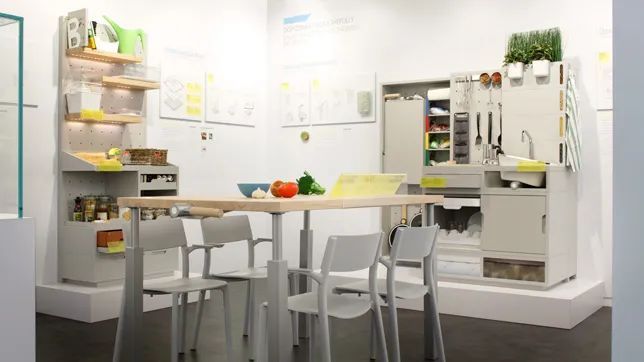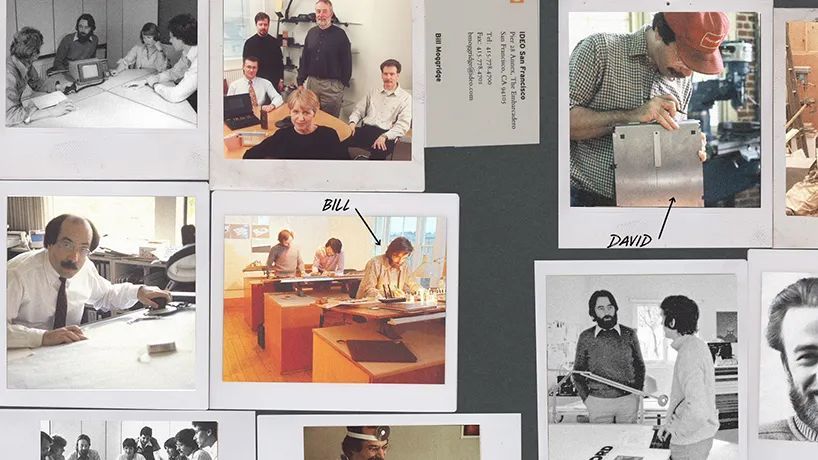The Slow Death of Design
)
In October this year, Derek Robson, the CEO of IDEO, announced a significant restructuring within one of the world's most renowned design companies over the past three decades. The company, known for its innovative and impactful designs, disclosed plans for a massive layoff, a staggering 32% reduction in its workforce. Aside from the layoffs, IDEO shut down offices in Munich and Tokyo, while scaling down operations in three locations across the United States, London, and Shanghai.
So, who exactly is IDEO, and why did the downsizing of this company garner extensive coverage from media outlets like Time Magazine and Fast Company?
The Pioneer of Design Thinking
The inception of Design Thinking was attributed to IDEO. As Steve Jobs, the co-founder of Apple, once remarked, "When we see weird problems, it's likely that someone at IDEO has the capability to solve them."
That's no mere compliment.
IDEO, established in 1991, emerged from the merger of three smaller design companies: David Kelley Design Studio (founded by Stanford University professor David Kelley, also known for founding the renowned Stanford University D.School), ID TWO design firm (founded by Bill Moggridge), and Matrix Product design firm (founded by Mike Nuttal). Currently, Sandy Speicher heads IDEO, operating under Steelcase, a subsidiary of the world's largest furniture manufacturer, Steelcase.

IDEA remains one of the most awarded design companies in history. Surprisingly, its core business isn't solely about manufacturing products or conducting pure research, sales, or marketing. Instead, IDEO's engineers and designers daily engage in crafting new products, environments, and innovative strategies for clients across various sectors like computing, medical devices, toys, office furniture, and the automotive industry. This versatility stems from the expertise of hundreds of designers within the company, each specializing in different domains, including human-machine interfaces, mechanism development, electronics, software, industrial design, and interface design. Riding the wave of technology and the internet, IDEO has designed over 4000 new products for more than 1000 different clients.
Most significantly, IDEO pioneered the concept of "Design Thinking," a methodology suggesting that anyone can solve problems like a designer and flexibly embed this mindset into various projects.
"Design thinking is a human-centered approach to innovation that draws from the designer's toolkit to integrate the needs of people, the possibilities of technology, and the requirements for business success." – Tim Brown, CEO of IDEO
Over the years, many companies have tried to emulate IDEO's success, with some even engaging their engineers alongside IDEO's on their projects to absorb its culture. Yet, why has this legendary design company begun to fade in recent years?
A Design Firm's Demise
In 2016, IDEO was acquired by Kyu, a design, innovation, and marketing company group under the Japanese holding company Hakuhodo DY Holdings. According to a former IDEO employee, the company's revenue plummeted drastically over the past four years, dropping from $300 million to a mere $100 million.
Numerous factors contributed to this revenue decline, primarily due to the global economic downturn resulting in reduced budgets. An article in Time Magazine titled "These Companies Have Announced the Biggest Layoffs in 2023" mentioned not only technology companies like Facebook, WhatsApp, Instagram, and Reality Labs but also Amazon, Google, and Microsoft facing layoff crises. The article noted, "This move comes amid massive layoffs in certain sectors of the American labor market, particularly in technology, finance, and media."
IDEA, heavily reliant on finance, technology, and the internet, was particularly vulnerable to these market shifts. Similar to the advertising industry proclaiming "The Death of 4A's," the creative thinking services of the third party industry also entered its harsh winter.
The Wall Street Journal reported that the "big four" accounting firms - Deloitte, EY, KPMG, and PwC - are significantly reducing external consulting budgets, particularly consulting service budgets. AdWeek reported a significant reduction in advertising technology positions in 2023.
Yet, attributing all the reasons solely to economic downturn might be oversimplified. Over the years, IDEO has been selling courses on design thinking, teaching industry professionals, essentially becoming its competition.
Another crucial factor is that each IDEO project typically requires six to twelve weeks, offering research insights, design principles, corporate workshops, prototypes, and product roadmaps. For companies able to afford IDEO's services, the threshold is high, especially for creative needs that demand considerable additional labor and development before hitting the market.
Excessive reliance on networks is also a structural downside for IDEO. A former team leader mentioned, "Tim Brown will do something. (The company) will get through this network, but when these people no longer go out and do things, their relationships fade." Simultaneously, IDEO's often publicly discussed issues such as DEI and the climate crisis do not generate much income. Insiders estimate that IDEO completed only $2 million worth of climate-related work over the past year.
Additionally, IDEO's consultancy service fees are rather high, second only to McKinsey.
We've also gathered some discussions about their layoffs:
innovation20099:
Their decline isn't entirely IDEO's fault. The pandemic injected a lot of cash into all industries, benefiting these companies. Now, with reduced businesses and expensive loans, this is a natural decline.
livingstories:
IDEO successfully made the world believe that R&D was the key to corporate success. Now, as designers work internally in tech companies, it's regrettable that IDEO couldn't adapt to this world: companies need fewer consultants, they used to lead the charge but haven't adapted (to the current scenario).
George Ay:
As a person of color working in the company, my experiences have always been negative. Many characteristics of white supremacy culture are renamed as professionalism. Perfectionism, constant urgency, parental style, hoarding power, fear of open conflict, and individualism are fully displayed.
anonymous:
"We don't have internal AI experts. Who would go to IDEO (to work) when you can go to IBM, Microsoft, or Google (and earn more)?"

Eliott Johnston: The Slow Death of Design
However, beyond discussing IDEO's internal issues (such as white supremacy hidden in corporate culture), what might be more concerning is whether IDEO represents a universal problem facing the current design industry?
In recent decades, "design thinking" has become a potent problem-solving method, reshaping industries and revolutionizing corporate innovation. Yet, as this method became mainstream, market saturation brought new challenges, and companies like IDEO, pioneers in design thinking, faced unforeseen crises. But did they bring new solutions as they did in the past? Or did they merely contribute to the proliferation of "zero-creative" ideas, mired in homogeneity and assembly-line production?
In 2008, IDEO's co-founder Bill Moggridge showcased a concept tricycle, Aquaduct, at the Design Indaba conference in Cape Town. The tricycle could purify water through the rider's pedaling, aiming to assist people in developing countries who often have to travel long distances to access safe drinking water.
While IDEO undoubtedly produced numerous commendable works, the Aquaduct project revealed the issue of power imbalances within design.
"In all discussions about human-centeredness, a profoundly humanizing factor is often overlooked - the fundamental understanding of how power operates between people."
As a fraction of the iceberg, Aquaduct nearly demonstrated how IDEO no longer catered to genuine new needs in this new world.
C. Eliott Johnston's article "IDEO: The Slow Death of Design" pointed out the underlying reasons behind IDEO's struggles, some of which we have translated:
"IDEO seems to be elevating the concept of democratization to a new level, following cultural groups, which is undoubtedly poison for those engaged in design work. In my view, designers should play the role of a prophet, distancing themselves from those trying to please nobles and commoners. Design, at its core, serves the philosophy of achieving visible equilibrium. Design should remain an unwavering pillar, although designers should advocate voices or respect different backgrounds, they should also reject the idea that every voice has equal say in design. When you start bowing down to timid democratization, design loses its purpose, and indeed they (IDEO) have bowed down."
However, apart from these philosophical issues, I am concerned that another factor has contributed to the struggles of IDEO (and other design companies) - the silent death of singularity. Few can accurately diagnose the causes of this ailment. My observations suggest that as our lives become increasingly comfortable, we become increasingly satisfied with the iterative changes technology provides us, falling in love with internal stasis. To meet this need, the traditional design mindset is superfluous for the development of anything. Pioneering innovation has yielded to the evil descendants of comfort and data-driven bureaucracy, concerned only with not upsetting their audience.
Unfortunately, most designers seem unaware of the death of uniformity or its omnipresent influence on their lives. They wander through life, blissfully unaware that they are being deftly manipulated into the illusion of individuality by complex algorithms. However, even more surprising is that most people feel a shallow and abused discomfort interacting with these algorithms – yet they still cannot sever these ties. This (in altering the paradigm of operation) is the stage where design should thrive! Where IDEO should find its new mission. Sadly, they seem to be caught in the same siren song, ceaselessly searching for another pot of gold under the same rainbow.
Therefore, IDEO's struggles encapsulate the broader transformation I hope for in the design industry. A reduction in the workforce and arduous challenges may prompt people to change stale norms, forsake the design thinking process, and return to the true essence of design - as a harbinger of change, becoming a torchbearer for uniqueness in a unified world. It's time for IDEO and the entire design industry to break these conventions and rediscover their prophetic spirit."

